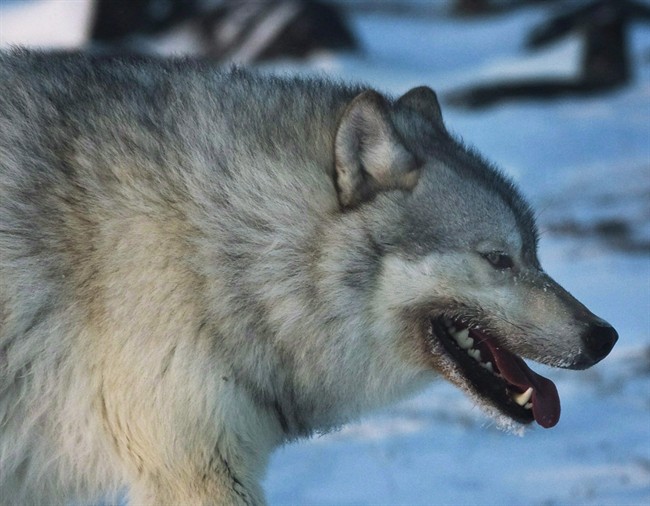EDMONTON – Alberta programs that offer cash for dead wolves are obsolete and ineffective and the provincial government should take steps to forbid them, says the world’s largest network of conservation scientists.

In a letter to Alberta Premier Alison Redford, the International Union for the Conservation of Nature asks the government to “eliminate the archaic and out-dated methods of wolf bounty payments.”
But defenders of the program say wolf populations are growing in Alberta and something needs to be done to keep them in check.
Last spring, environmentalists warned that privately-funded bounties for killing wolves are shifting control over Alberta’s wildlife management to special interest groups.
They pointed out that at least six municipal districts, as well as two branches of the Alberta Fish and Game Association, were paying wolf bounties of up to $500 per wolf — several times the value of the animal’s pelt.
U.S. hunting groups such as the Wild Sheep Foundation have paid out thousands of dollars on wolf bounties through local fish and game clubs.
As of last spring, at least 643 bounties had been paid out in Alberta, they said.

Get daily National news
The information about bounties spurred the international union, which advises the United Nations on conservation matters, to write letters to both Redford and Alberta Environment Minister Robin Campbell.
“The bounty payments … are (an) ineffective method of predator management and would be unacceptable in many countries around the world,” said the Feb. 4 letter.
Bounties don’t target the specific wolves and wolf packs that attack livestock and reduce big-game populations, said Lu Carbyn, a University of Alberta biologist and member of the union’s canid specialist group.
“If you have just trapping and shooting, you’re not necessarily killing all the pack — just a portion of them,” said Carbyn. “The wolves get smarter, and they’re going to do their thing.
“It makes some inroads into the wolf population, but it won’t solve the problem.”
Carbyn said U.S. game managers radio-collar one member of a pack — called the Judas wolf — and use that to locate and eliminate an entire pack if it starts causing problems.
Gordon Poirier of the Alberta Fish and Game Association said he’s aware of the skepticism over bounty programs, but said the combined take of hunters and trappers in the province don’t begin to control burgeoning wolf numbers.
“The wolf population is almost out of control,” he said.
Alternative measures, such as sterilizing a pack’s alpha male and female, have been blocked in the past by public outcry, he said. He maintains bounty programs are targeted and do work.
He acknowledges the problem is made worse by increasing human encroachment into wolf habitat, but adds that doesn’t change anything.
“You have to do something,” Poirier said. “They have to be controlled.”
In his response, Campbell seems to acknowledge that scientists have a point.
“Government staff have met with several of the municipalities offering wolf bounties and provided them with information indicating that these types of programs are not effective in reducing wolf depredation,” he wrote on Jan. 3.
Carbyn said Alberta’s current approach goes against internationally agreed-on standards for wildlife management.
“If they have a wolf control program, it should not be a broad-scale program,” he said. “It should be problem-specific, limited in duration and carefully monitored.”





Comments